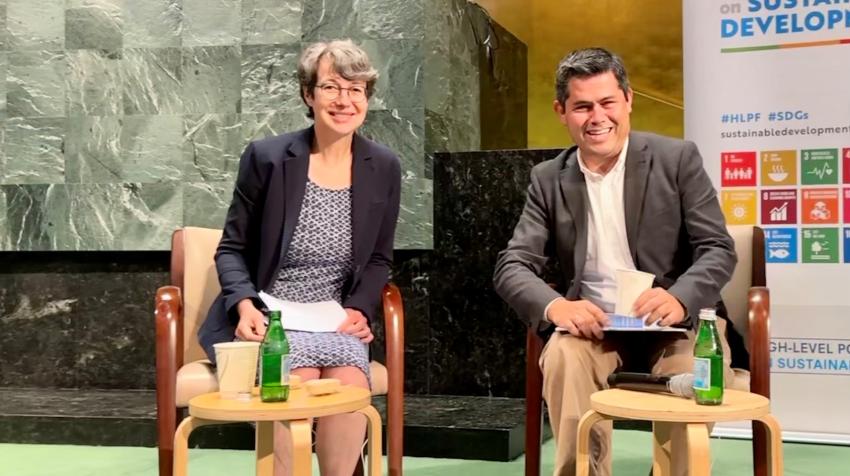11 September 2023 - Achieving the Sustainable Development Goals (SDGs) by 2030 will be no easy task. Fortunately, an Independent Group of Scientists (IGS) appointed by the United Nations Secretary-General is working on a new set of recommendations aimed at leveraging the power of science to understand and navigate relationships between our economic, social and environmental objectives. This report —the Global Sustainable Development Report 2023 (GSDR)—will be released on 12 September, just ahead of the SDG Summit.
We spoke with the two IGS co-chairs, J. Jaime Miranda, founding Director of the CRONICAS Center of Excellence in Chronic Diseases at the Universidad Peruana Cayetano Heredia and Head of School at the Sydney School of Public Health, and Imme Scholz, Co-President of the Heinrich Böll Foundation in Germany, about how science can inspire the development transformations we need.
Why is making clear the connection between science and good policymaking so important?
Mr. Miranda: “Let’s start with the obvious: We’re not on track towards a sustainable planet and there is no planet B. We need to up our game and act together. Science, and hence the science behind transformations, is essential to understand and embrace the complexity behind the difficult choices that our countries have to make in order to accelerate towards positive transformations.”
Ms. Scholz: “Transformation towards sustainable societies and economies requires that we unlearn past concepts for success and innovate for new pathways and practices, sustainable technologies and infrastructures. Science is essential, but not sufficient in itself. Good policymaking combines scientific insight with social norms and with what people need, want, and are prepared to give. This includes spelling out the costs and benefits of transformation and defining a just transition.”
How can we improve this relationship?
Mr. Miranda: “There is goodwill, appetite, and willingness to meaningfully engage science and policy making. At the end of the day, our role is to generate socially robust science. In that regard, the relationship between science and policy is not only natural but also powerful, and capacity is essential to improve this relationship. Capacity-building is therefore the cornerstone behind the transformations that our world needs if we are to envisage a different and fruitful future for humanity. And, to achieve that, we need multiple capacities: to listen, to negotiate, to forecast, to communicate, to engage, etc.”
Ms. Scholz: “We propose to invest in building capacity for achieving transformation – and this includes everyone—scientists, policymakers, public administration at all levels, the private sector and civil society. “Capacity” means the ability to strategize, communicate and cooperate in order to maintain direction and solve conflicts. We need to increase scientific literacy and restore trust in scientific data and evidence. And, countries with strong science and innovation systems need to support countries in Latin America, Africa, and Asia to strengthen theirs.”
Can you share an example of science influencing policy with good results?
Mr. Miranda: “The most recent pandemic showed us that the world and the scientific community can get together, and act together. The development of a safe and effective vaccine against the coronavirus responsible for the COVID-19 pandemic and its delivery in record time, less than one year, confirm that we have the ability and even more, that we can. This type of scientific progress shows us that we can do things, that we can prioritize essential transformations, and that science can work together with policymaking.”
Ms. Scholz: “An important success story is renewable energy technologies. It started with technological innovation based on sun, wind, geothermal heat and wave power. Then economics and regulation came in to push diffusion and thus reduced generation costs massively. Since 2020, according to the IEA’s World Energy Report 2023, global investment in clean energy clearly surpasses that in fossil fuels.”

